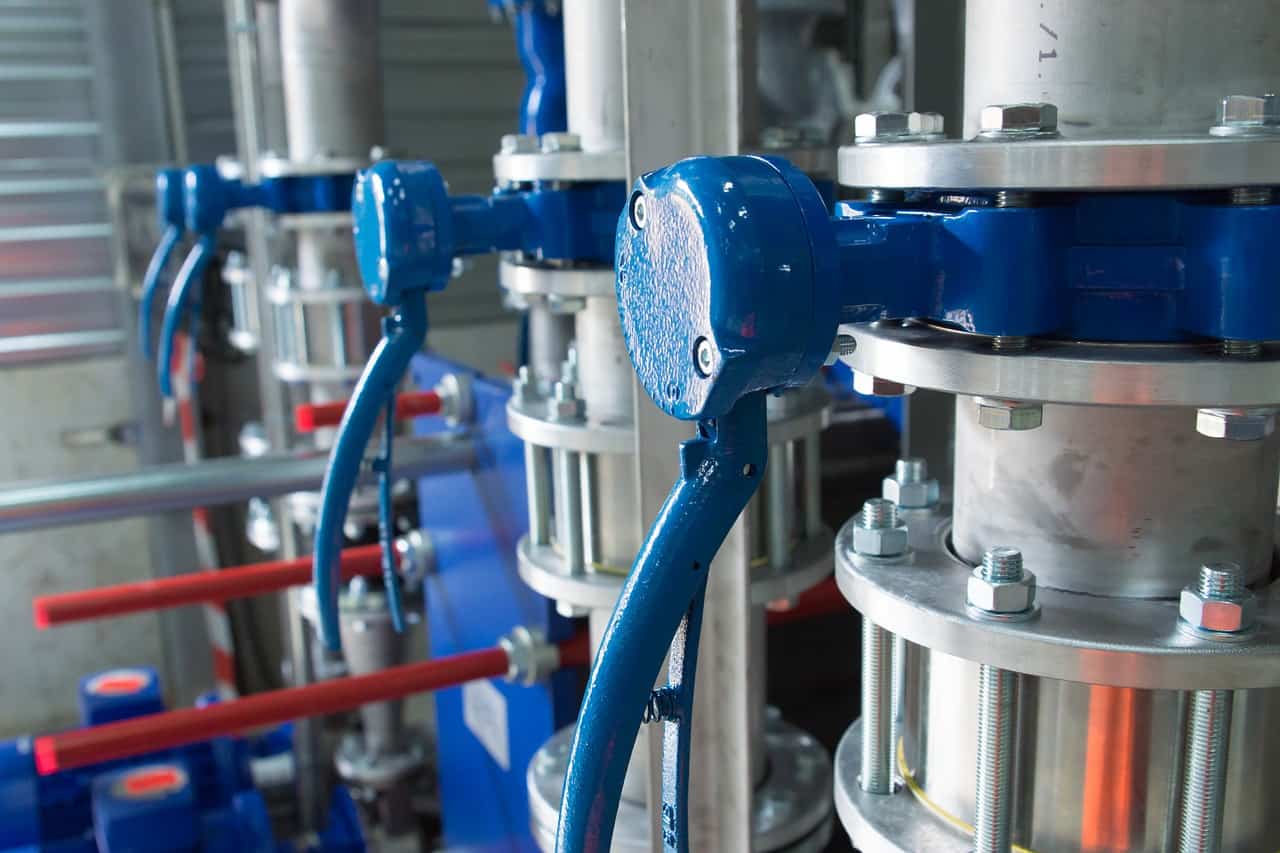Reverse osmosis (RO) is a water purification technology that uses a semi-permeable membrane to remove ions, molecules, and larger particles from drinking water. In reverse osmosis, the applied pressure is used to overcome osmotic pressure.
Reverse osmosis can remove many types of dissolved and suspended species from water, including bacteria, and is used in both industrial processes and the production of potable water such as fluoride.
The result is you get very pure water. Unfortunately, this water becomes “Dead Water” lacking the alkaline minerals needed by your body and even worse can leach it from you.
Let’s be clear about this, its NOT natural to drink 100% pure water.
We understand that your RO salesman has already heard this complaint and has an answer ready for you. He will try to sell you a ‘remineralizing’ cartridge’ to add the minerals you just paid to have removed, back in. Our report on remineralizes follows, and we’ll help you steer clear of the majority of duds sold to people like you.
But let’s try for another ‘brownie point’ in your decision. Just WHY isn’t pure water good for you?
We all agree that we require an adequate supply of electrolytes.
Reverse Osmosis Pro’s
- Removes up to 99% of fluoride and chlorine (IF the unit is properly maintained and filters changed regularly, also can be as low as 90%).
- Removes virtually all bacteria, micro-organisms, and tiny germs.
- Removes Lead and Heavy Metals (Note: it’ s almost impossible to locate any test data of RO systems beyond initial (new) use tests. Cheap RO units use Chinese prefilters that quickly degrade the RO membrane).
Reverse Osmosis Con’s
- Leaves water demineralized (lacking any minerals).
- Expensive and difficult to replace filters.
- Water often very acidic.
- Often sold with maintenance contract because it is too hard to maintain without specialized knowledge.
- Wastes at least 4 times the water it produces (sometimes as much 10 times).
- Often inefficient when chlorine affects membrane ~ especially on cheap Asian systems.
Why are Minerals/Electrolyte so important?
Electrolytes are electrically charged minerals in your body.
They are in your blood, urine, and body fluids. Maintaining the right balance of electrolytes helps your body’s blood chemistry, muscle action, and other processes.
Sodium, calcium, potassium, chlorine, phosphate, and magnesium are all electrolytes.
They are there because we need them and we need them because we have evolved over many thousands of years to utilize their health benefits. Our ‘Paleo’ metabolism is the same as it was thousands of years ago, our ‘paleo’ food needs are same, and our ‘paleo’ water needs are the same.
Dr. Lynda Frassetto (UC) has published some excellent work showing how our paleo metabolic template still operates – and she highlights the problems we have when we try to go against its needs.
The WHO even has made recommendations for minimum alkaline minerals in our water.
- For magnesium, a minimum of 10 mg/l (Novikov et al. 1983; Rubenowitz et al. 2000) and an optimum of about 20-30 mg/l (Durlach et al. 1989; Kozisek 1992);
- For calcium, a minimum of 20 mg/l (Novikov et al. 1983) and an optimum of about 50 (40-80) mg/l (Rakhmanin et al. 1990; Kozisek 1992);
- For total water hardness, the sum of calcium and magnesium should be 2 to 4 mmol/l (Plitman et al. 1989; Lutai 1992; Muzalevskaya et al. 1993; Golubev and Zimin 1994).
We have heard many RO vendors claim that the body cannot absorb inorganic minerals. It’s their way of skirting the issue that they remove all minerals. They argue that the removed minerals are inorganic so they wouldn’t be absorbed anyway. This is simply untrue. We absorb ‘inorganic’ minerals every day.
Your body can take up anywhere from 6% to 30% of its daily requirement of essential minerals from tap water. We live in a world where our soil is becoming devoid of nutrients as we over-farm and over-fertilize it. Our diets are far from healthy, so in our opinion, it is very important to your long term health that you ingest calcium and magnesium from drinking water.
This is certainly supported by the latest news of ‘hundreds of Israelis’ actually dying from drinking their nationally supplied nutrient-stripped water.
Reverse Osmosis and De-mineralized Water
In nature, freshwater contains traces of natural minerals like calcium and magnesium‚ which is what our body was designed to run on and what the UltraStream system produces.
So we’re going to be very, very careful in our claim that reverse osmosis may be so unhealthy that it may even kill you.
In a previous post, we introduced the Israeli scientific study directly linking RO water to hundreds of CVD deaths every year. The report is the only one we’ve seen, and so one can be forgiven for being cynical. But, let’s score ourselves on this. If we can show you five good reasons you absolutely should NOT drink ‘pure’ RO water… then we assume you have accepted what we said, and we will be happy to help you make the change to healthy water.
Let’s look at the next study we’ve been privy to. This is from the World Health Organisation. (download it here).
In our last report, we said that humans have never had pure water. Let’s see what the WHO says:
“The composition of water varies widely with local geological conditions. Neither groundwater nor surface water has ever been chemically pure H2O since water contains small amounts of gases, minerals and organic matter of natural origin. The total concentrations of substances dissolved in freshwater considered to be of good quality can be hundreds of mg/L.”
and…
“It was clear from the very beginning that desalinated or demineralized water without further enrichment with some minerals might not be fully appropriate for consumption.”
~World Health Organisation
Is there an alternative to Reverse Osmosis?
Yes, there is a water filter that Removes Heavy Metals, Toxins, Bacteria, Chlorine, Chloramines, and Fluoride (and has been tested for the life of the filter) plus removes hundreds of more toxins out of our water. It maintains essential levels of calcium, magnesium, and trace minerals for perfect pH balance. The UltraStream outperforms electric ionizers that can cost thousands more and infuses the filtered water with molecular hydrogen. Over 700 scientific studies validate health benefits from infused hydrogen!
More Health Risks of Drinking Pure Water
The German Society for Nutrition came to the same conclusions in 1994, warning the public against drinking pure water.
The society explained that water in the body needs specific ratios of electrolytes.
When we drink pure water our intestines call for electrolytes, demanding them from our body’s mineral buffers. When we have a limited supply (because we have been drinking RO Water) this causes a dilution of essential electrolytes plus insufficient water redistribution.. which may compromise the function of vital organs.
Early stages may include fatigue, headaches, weakness, muscle cramps, and even heart rate abnormalities.
There’s an insidious aspect to this. Don’t expect that you are going to die tomorrow from drinking pure water. Depriving your body of electrolytes and alkaline minerals won’t manifest problems overnight. It will take time.
But time, when we don’t have it, is enormously precious!
We mentioned in our previous post that filtration technology has advanced in quantum leaps in the last decade. Twenty years ago there was little choice other than RO to get the water you were told was the safest because it was the purest.
Today one small benchtop filter delivers filtration efficiencies so similar to RO but does NOT remove essential electrolytes. Not only that, it adds magnesium, the mineral whose loss caused the Israeli problems, and it adds molecular hydrogen to the water, now the subject of over 700 scientific studies into its health benefits. Unlike a reverse osmosis system, it can be installed in minutes, it doesn’t need six filters, it wastes no water, and it doesn’t need a special visiting expert to change filters.
It’s our invention, conceived in Australia, made in the USA, home of the finest filtration technology in the world.
Clinical Manifestations of deficit state of major electrolytes
Sodium
Hyponatremia: weakness, fatigue, anorexia, nausea and vomiting, decreased mental activity, hypotension, diarrhea.
Potassium
Hypokalemia: muscle weakness, paralytic ileus, abdominal distention, lethargy, tachycardia, metabolic alkalosis.
Calcium
Hypocalcemia: convulsions, muscle cramps, tingling of fingertips, ears, nose, toes, tetany.
Chloride
Hypochloremia: Achlorhydria, increased respiratory rate, dyspnea, metabolic alkalosis



